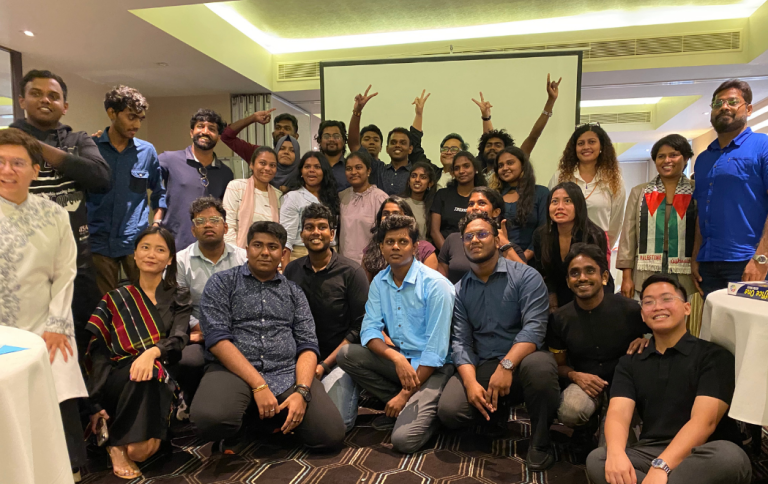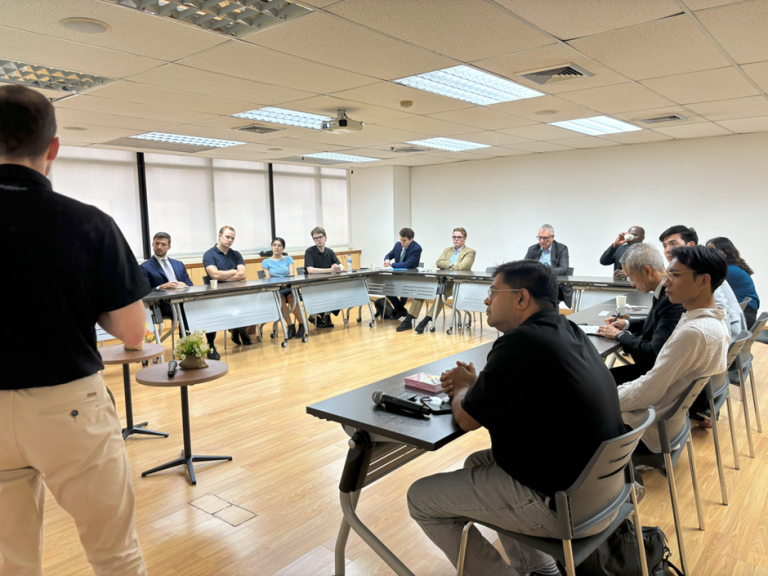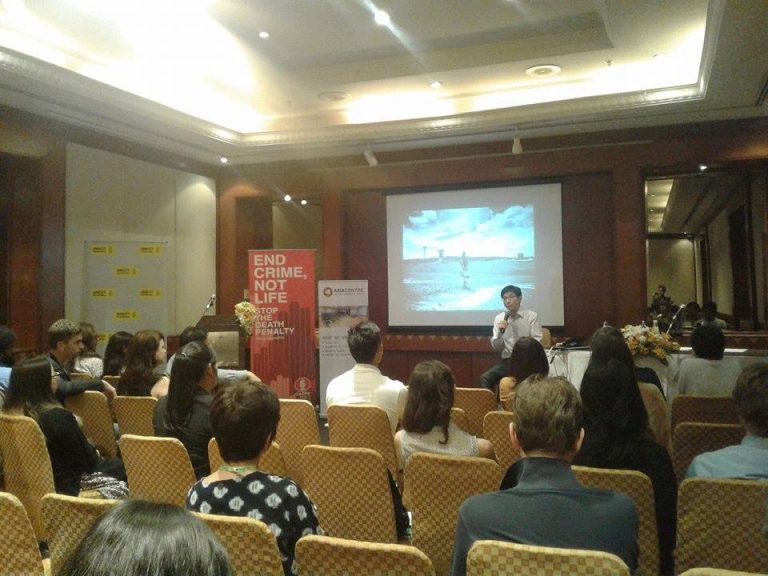The International Institute for Democracy and Electoral Assistance (International IDEA), a title partner for Asia Centre’s 8th International Conference on “Democracy and Elections in Asia”, hosted two panels and a demonstration session. During the three-day conference, panel speakers convened by International IDEA emphasised the importance of offering support and fostering solidarity with democratic actors in Asia.

This importance was underscored during the opening remark on 23 August by Leena Rikkilä Tamang, International IDEA’s Director for Asia and the Pacific. She emphasised that, given the numerous challenges to democracy posed by electoral manipulation, the importance of solidarity and cooperation among civil society actors has become even more critical.
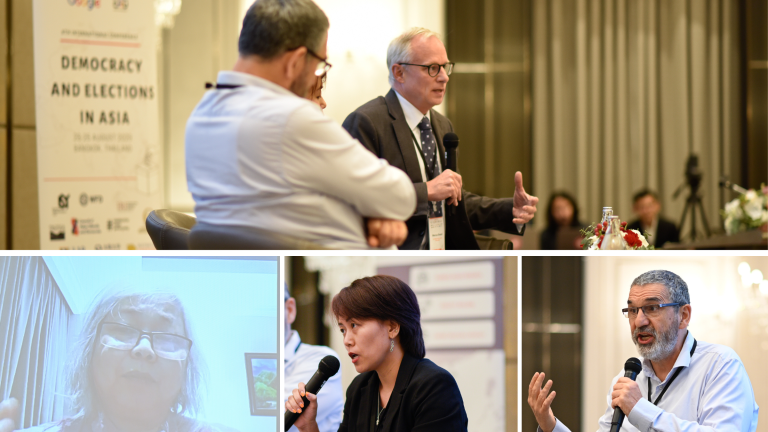
International IDEA’s opening panel of the conference titled “Perspectives and Prospects for Future Democratic Elections in Myanmar.” Moderated by Marcus Brand, Head of the Myanmar office, the panel delved into the range of issues surrounding the election to be conducted under the junta regime. The consensus among the panellists was that civil society and democratic actors should withhold legitimacy and institutional support for the forthcoming election until the junta guarantees a free and fair electoral process for the citizens of Myanmar.
Three speakers discussed inclusivity issues and democracy in Myanmar. Debbie Stothard, Coordinator/Founder of Alternative ASEAN Network on Burma (ALTSEAN-Burma), pointed out that there is a lack of inclusivity of young people and ethno-religious minorities – who play a huge role in the democratisation efforts – during the transitionary period. These actors are crucial for a future electoral model that is free and fair. Thinzar Shunlei Yi, Deputy Director of the Anti-Sham Election Coordination Committee (ASECC) and Human Rights Advocate added that civil society actors have to be properly included in the process to develop a post-coup regime that is truly democratic and responsive to the needs of the citizens of the country. Igor Blaževič, Head of Prague Civil Society Center, speaking from the vantage point of the international community, emphasised that INGOs should use their positions to discourage giving legitimacy to the election and instead provide needed support to key civil society organisations in the country.
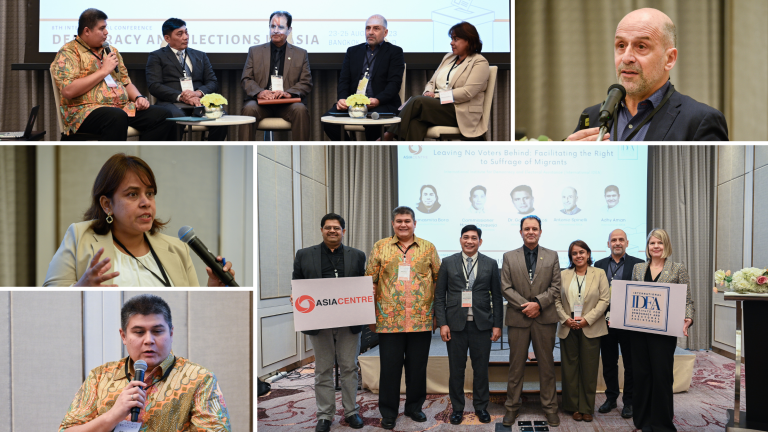
On the second day and in the second International IDEA panel “Leaving No Voters Behind: Facilitating The Right to Suffrage of Migrants”, moderated by Senior Programme Manager of International IDEA’s Asia and the Pacific Regional Programme, Adhy Aman, panellists – experts from India, Nepal, and the Philippines – highlighted the inconsistent treatment of migrants’ electoral rights as a major roadblock to enhancing voting accessibility and inclusiveness in Asia. Dr Banasmita Bora, independent researcher, illustrated the situation in India. The country has a significant migrant population facing disenfranchisement, with fewer than a quarter actually using their right to vote due to the financial constraints of having to vote in-country. This issue extends to internal migrants, who constitute a substantial portion of the migrant population and are also significantly disenfranchised in local elections. Commissioner Marlon Casquejo, Commission of Elections, Philippines, noted that civil society should advocate for a holistic approach towards overseas voting, which includes easier voter registration, more opportunities for Filipino nationals to vote from other countries, as well as study the possibility of internet voting. Dr Gopal Siwakoti, INHURED International (Nepal), pointed out that the lack of provisions for out-country voting or online voting in many countries further disenfranchises the migrant population who already lack political and financial leverage. This is particularly the case in migrant-sending countries such as Nepal.
Antonio Spinelli, International IDEA, built on the points made by other speakers and concluded that a lack of mechanisms to facilitate absentee voting jeopardises the right to universal suffrage which lays a foundation for the right to self-determination. Overall, the panel showed that those advocating for absentee voting have not been properly supported and have not been given a platform to speak up on the issue. It is therefore important that more focus be given on the topic.
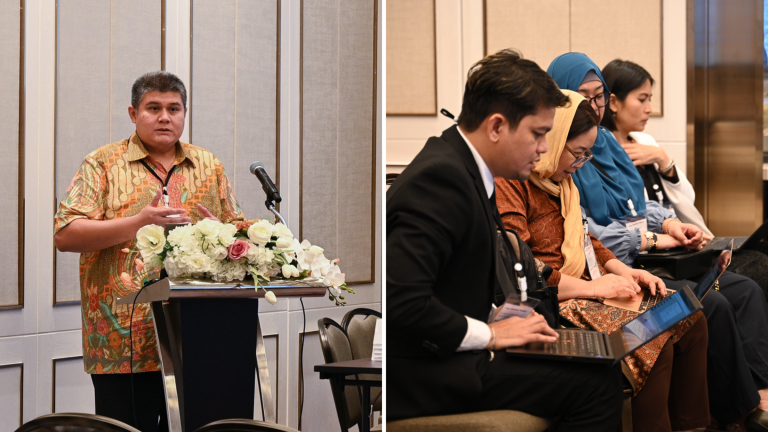
The International IDEA, on the third day of the Conference, also showcased its “Electoral Redistricting App (ERA)”. Developed on the backdrop of unfair gerrymandering of electoral districts worldwide, the App makes it easier to create electoral redistricting maps that conform to international principles and best practices. Facilitated by International IDEA’s Senior Programme Manager Adhy Aman, conference participants tried out the App themselves and came up with various ideas of how a better electoral district could look like in their respective countries. Civil society can also use the redistricting app to advocate against gerrymandering with their respective governments.
This conference helped strengthen the two organisations’ partnership which was already a year in the making. In the lead-up to this conference, Asia Centre and International IDEA signed an MOU in December 2022 to formalise their partnership. The two organisations also co-convened a closed-door consultation on “Digital Authoritarianism in Southeast Asia” with representatives from diplomatic missions, UN agencies and civil society actors based in Bangkok, Thailand. Earlier in December 2022, Dr. Gomez delivered a presentation on the rise of disinformation and its relation to the distrust in media in an International IDEA-hosted event, “Democracy in Asia and the Pacific 2023 Outlook Forum”, in Bali, Indonesia.
In October 2023, the two organisations will co-convene this year’s edition of the “Democracy in Asia & the Pacific 2023 Outlook Forum” in Bangkok, Thailand.
To view the main conference article, articles on individual title partners who convened panels, as well as the TikTok videos and photo album, go to the main conference piece here.
The International Conference is Asia Centre’s annual event where it brings together its partners to share the outcomes of their programmes and network for future collaborations. Over the years, the conference has become a platform for a range of actors to meet and discuss key human rights issues. If you would like to become a Conference partner for Asia Centre’s 9th International Conference “Civic Space in Asia: Stories of Resistance and Pushback” or explore other collaboration opportunities, email us at contact@asiacentre.org.
For more information on the 9th Conference, click here.

